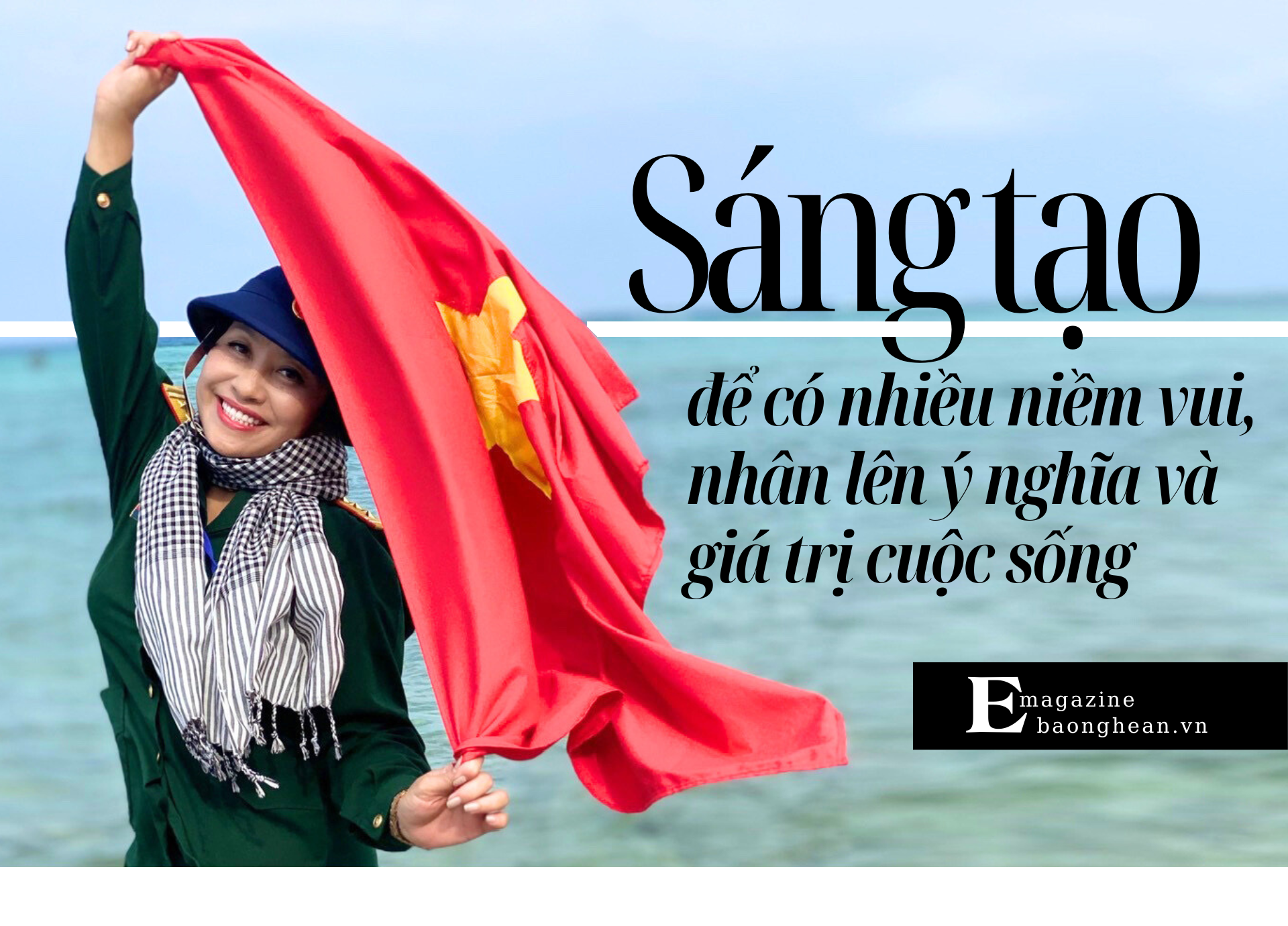
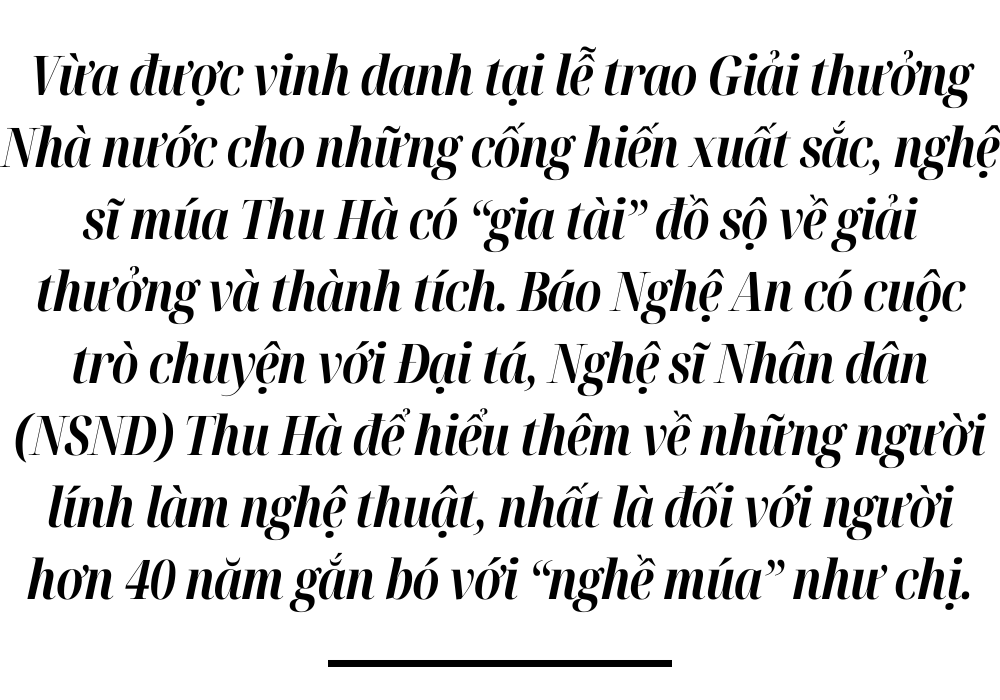
PV: Dear People's Artist Thu Ha, is dancing an instinct or a choice for you?
People's Artist Thu Ha:I was born in Hanoi but my hometown is Dien Cat commune, Dien Chau district, Nghe An province. I was born into a revolutionary family with my grandfather Nguyen Tat Thang, a party member from 1930 to 1931. Perhaps because I was born into such a traditional family, I was educated from a young age to strive to contribute to the military environment, to serve the Party, to serve the People...
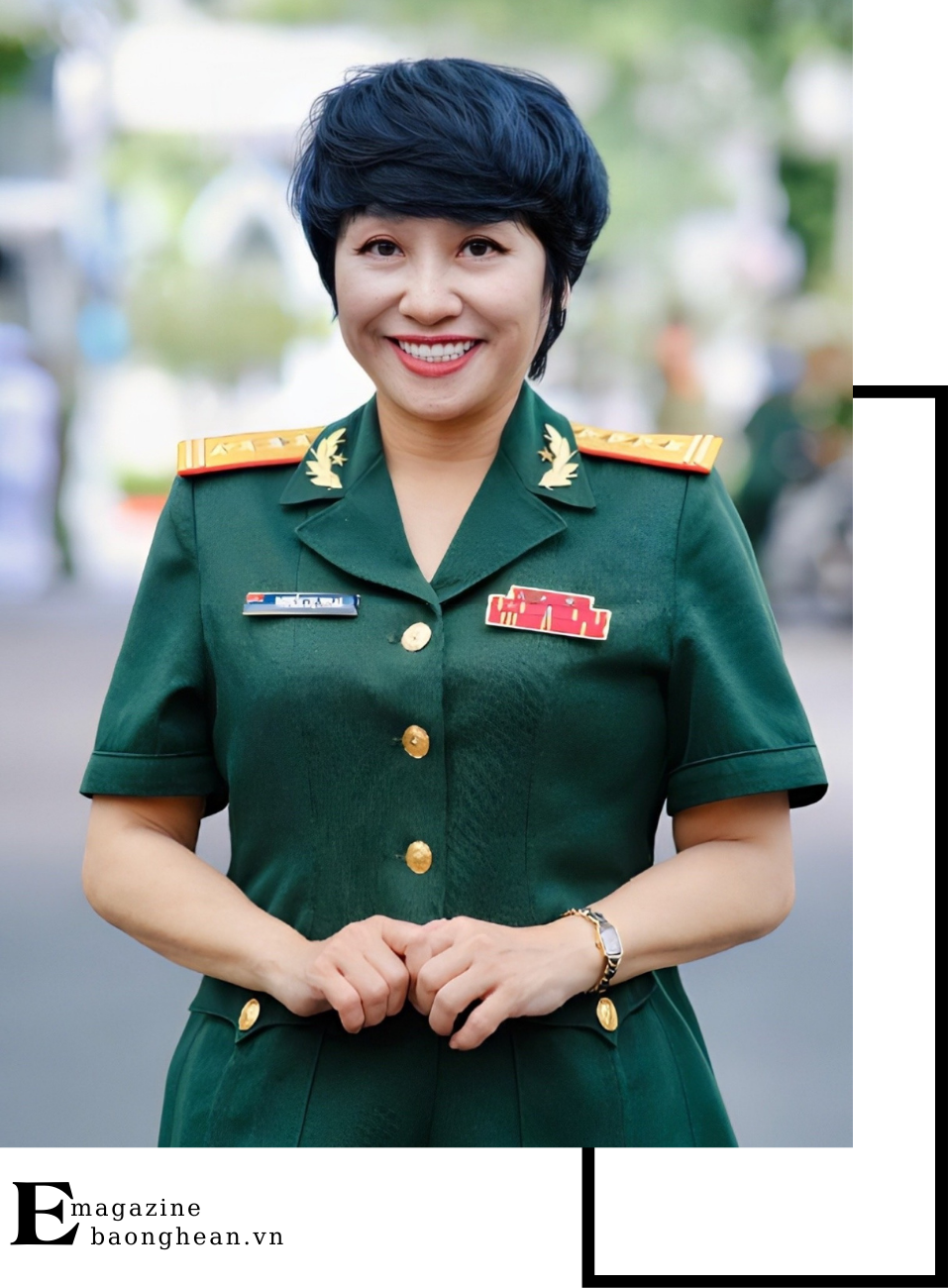
And to my family's surprise, since I was a child, I loved to show off my singing and dancing talents in front of a crowd, even though no one in my family was into the arts. In 1987, at the age of 14, I was admitted to the Military School of Culture and Arts with the excitement, confusion, fear, and inferiority complex of a child from the countryside. Moreover, I was small and weak, so I always told myself to try to be two or three times as good as my peers. Just like that, I grew up with courage and effort rather than natural talent.
Time passed and I had the maturity to join the Art Troupe of Military Region 4. At that time, I did not consider myself a good dancer, but I was passionate about the profession and considered it a way of life. Therefore, I always received the trust and expectations of the leaders and my colleagues. And the successes in this journey are the precious steps for my future path.
PV: For you, is the change to become a choreographer a coincidence or a desire to stay long in the profession of an excellent dancer?
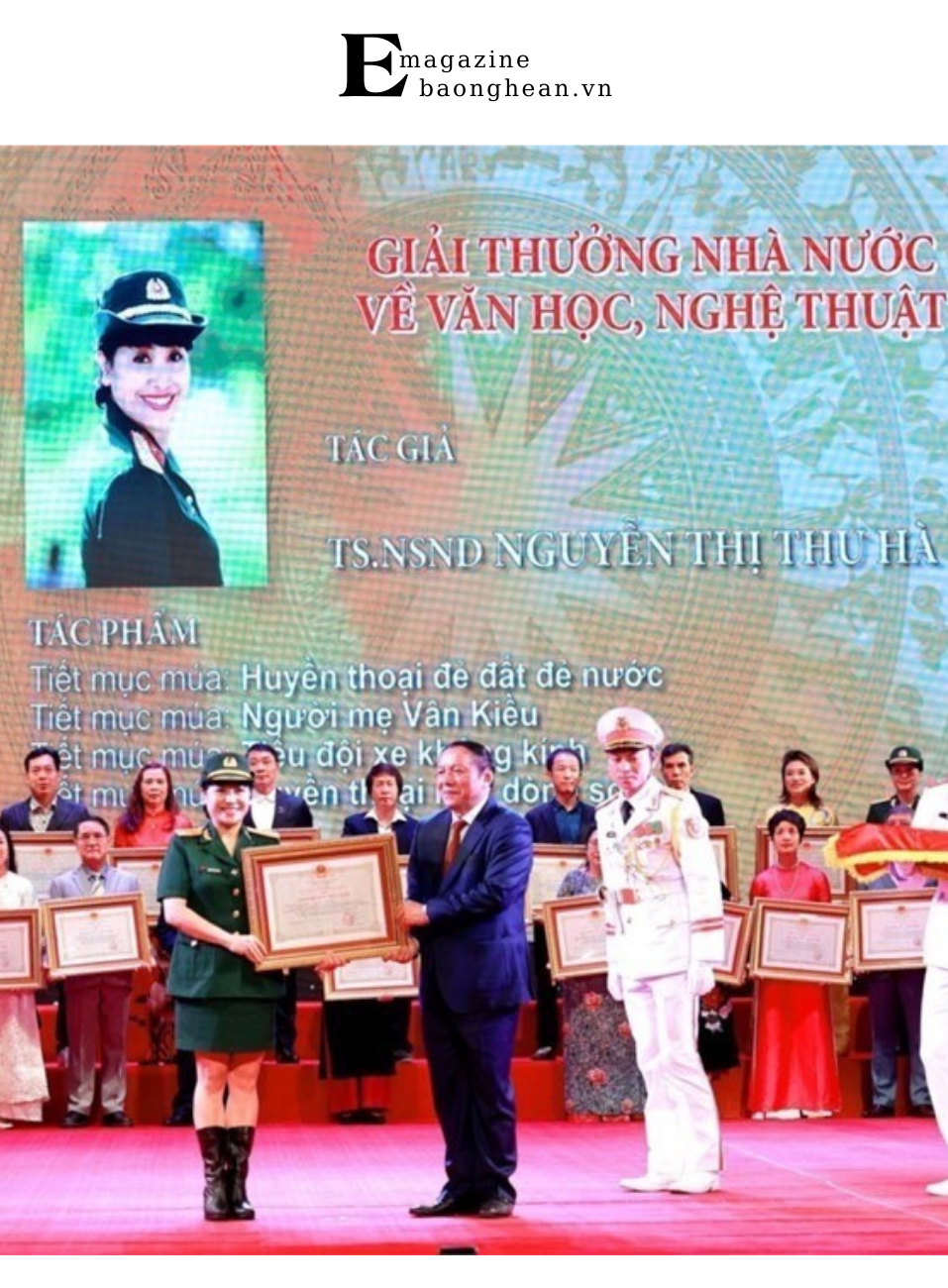
People's Artist Thu Ha:It was both fate and a deliberate choice. From the moment I started working as a dancer until I decided to study choreography, I always thought I would choose this path for the rest of my life. If an actor loves dance and simply chooses to be an actor to be able to transform on stage with ability and training, then their career will not last long. Usually, after the age of 35, female dancers have to give up the stage to younger ones, and many dedicated actors will stay with the profession by choreographing, otherwise they have to retire. But because I am so passionate and dedicated to dance, I think that the role of choreographer alone is not enough, I have to find a way to make dance fly far, fly high and spread it to many forums and many spaces. Therefore, creating dance works for me means creating music, scenery and distilling it from the poetic and cultural values of our ancestors from thousands of years ago. I am always passionate, concerned, and searching for breakthroughs in artistic creation to find the beauty and quintessence of national culture and contemporary life.
And through my learning, many dance works were born with sweat and tears... Right from the first days of being a choreographer, I had highly appreciated works such as: "Love of the Countryside" - Second prize in the national choreography talent contest in 2001; "The Van Kieu Mother", Gold Medal in the 2006 Army Festival; or "The Mother Mending the Flag", "The Colors of Brocade"... which left an impression in the hearts of the audience and dance lovers.
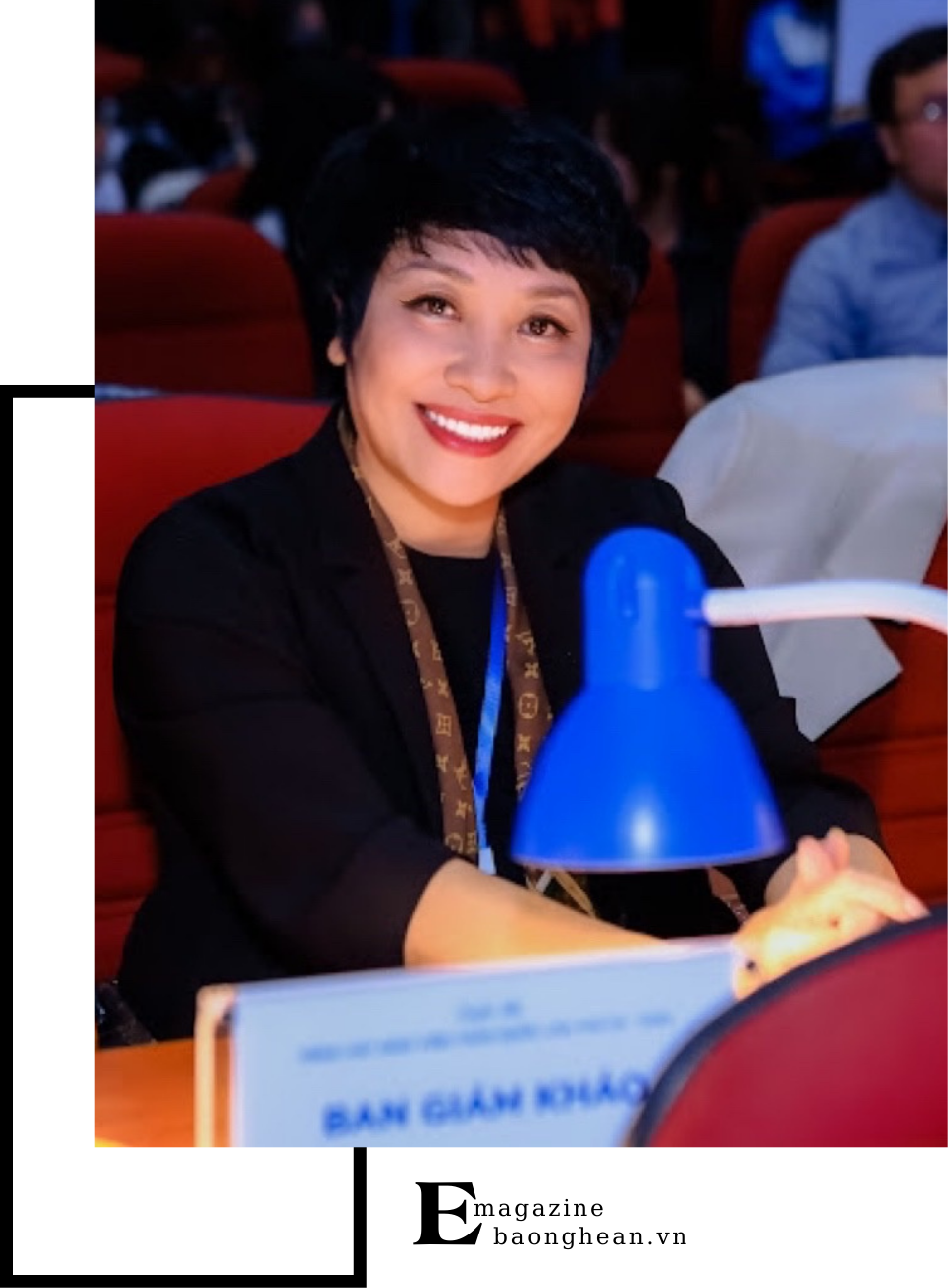
PV: Having graduated with honors in choreography and having had success right from the start of her career, when mentioning Thu Ha, people often mention a talented choreographer, passionate and strict with both herself and her working team. In your creations, which element do you usually consider the most important?
People's Artist Thu Ha:In my compositions, I always look for new things and themes from poetry, literature, and folk songs, such as the dance "De dat de nuoc" which I took from the poem of Vuong Anh, "Dong chi" which I took from the poem "Dong chi" by Chinh Huu, "Tieu doi xe khong kinh" from the poem of Pham Tien Duat, "Ten graces of parents" from the folk song "vi" and "giam" by Nghe Tinh... Many people ask me if I take the ideas from poetry and epics into a body language work, can the audience see the soul of the poem, love, humanity and national spirit in it? I would like to say that although the ways of expression are different, when stylized into dance, into expressive language through body language, the choreographer must tell the story of the poem or song they "rely on". That means, in each movement, each performance must show the audience what the actors are performing, what story that segment tells. This is difficult to say, because it requires the artist to be creative in how the music, scenery, costumes and actors' physical expressions truly blend together.
The works I mentioned above have all won Gold and Silver Medals in professional art performances across the army and the country. These works always maintain two elements: national and modern. National to preserve, conserve and promote tradition, not to lose the ego. Modern to suit the new breath of life, to meet the needs of cultural enjoyment of the times.
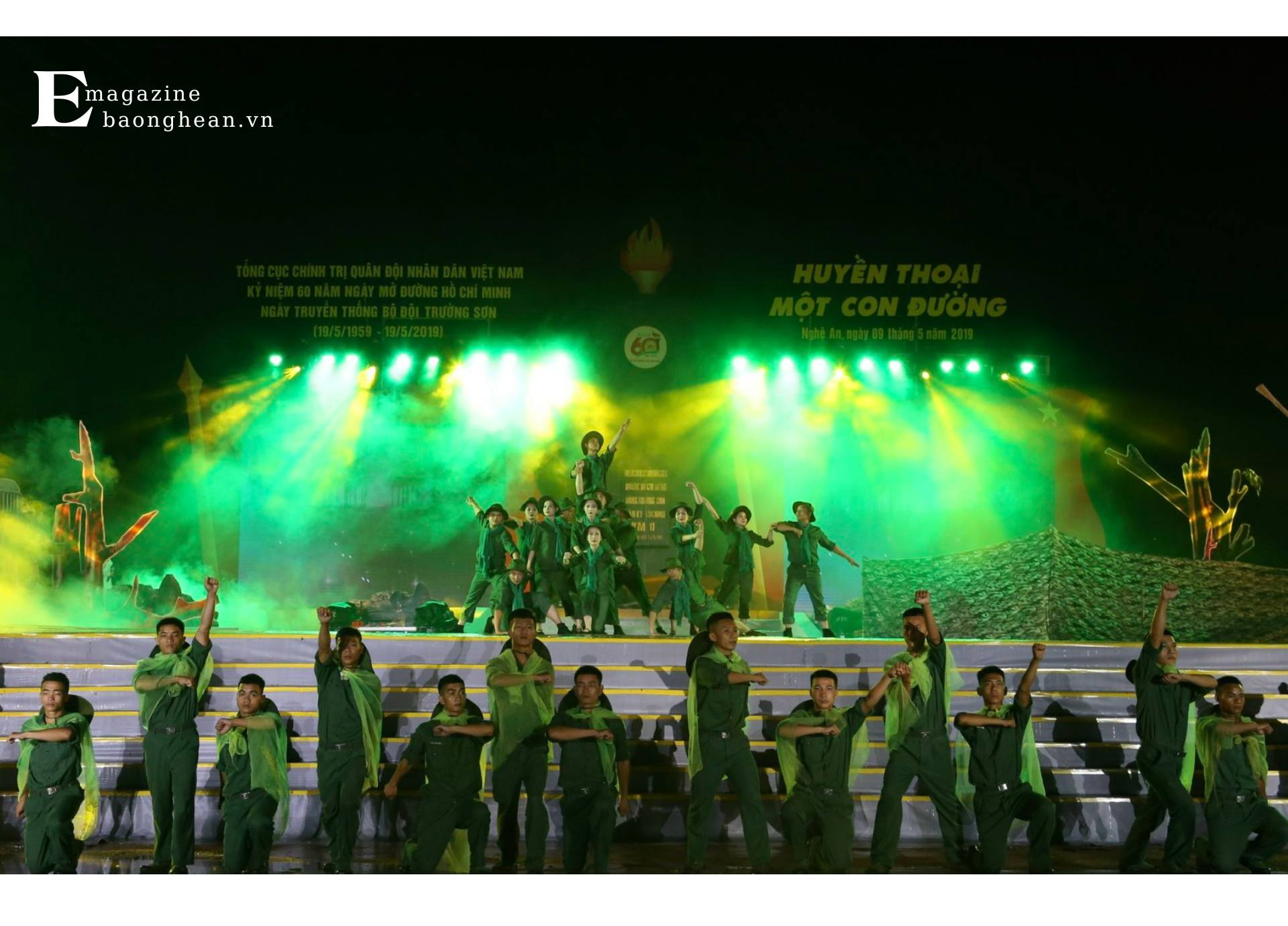
I also always think that each work must be the presence of the author himself, watching a dance work without needing an introduction, people already know who "created" it. I also realize that to create new things, things that no one has touched and reach the pinnacle of true art, the choreographer must not only be talented but also have a heart, a strong love for life. Only then can the work created spread a profound message to all audiences, to today's changing life.
PV: With the series of works awarded the State Prize, can you share your feelings?
People's Artist Thu Ha:The Ho Chi Minh Prize and the State Prize for Literature and Arts are noble awards for exceptionally excellent works of high value in literature and arts. I am extremely honored and proud to receive this award, but I think it is not surprising, because the works that I proposed for the award were all very dedicated and received high appreciation from experts and the public nationwide. These are the dance poetry group "Legend of the Birth of the Land and the Water"; the dance performance "The Van Kieu Mother", "The Glassless Vehicle Squad", "Legend of a River". These works have all won Gold Medals or A prizes at military and national music and dance festivals.
PV: Many of her colleagues shared that Thu Ha is a "Female General of the Field", because in every large-scale festival program in many localities across the country, she appeared as the General Director, or Deputy General Director, managing several thousand actors and leaving her own mark and brand. Typical examples include the Sea Games and Para Games; tourism years of Nghe An, Thai Nguyen, Thai Binh; Da Lat Flower Festival; Da Nang International Fireworks Show; Central Highlands International Gong Show... and most recently, the 60th anniversary of Vinh city's founding, 235 years of Phoenix Central Capital all brought a feeling of satisfaction and grandeur.
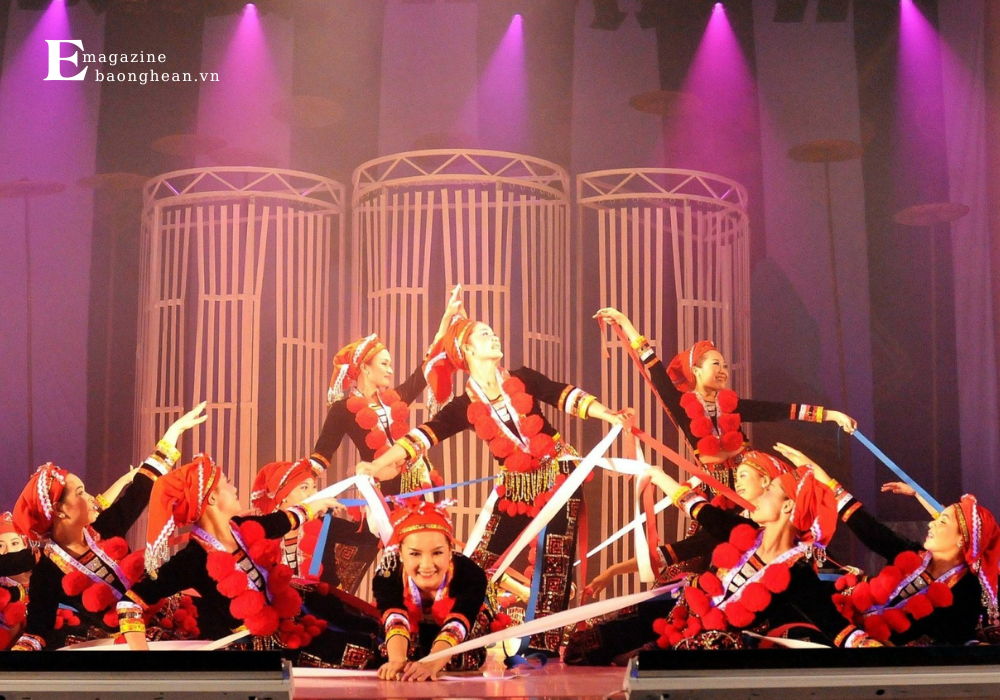
Tell us, what are the difficulties of the role of "female general" when running big programs?
People's Artist Thu Ha:As you know, in addition to my role as Director of the Practical Arts Theater of the Military University of Culture and Arts, I have actively promoted the role of the performing arts unit. I have participated with the staff, actors, and students in staging many large programs to serve the country. At first, I only participated as Deputy Director, then many localities and organizations invited me to be the General Director because of their trust and expectations. This job came to me by chance, when I grew up from small programs, people saw that I was qualified and qualified enough to invite and assign me to larger, larger scale and more important projects.
It is clear that it is difficult to run a large program, but I follow the plan and script that I have outlined, step by step, and then everything difficult is completed. I still remember large-scale programs like Seagame, to have the sophistication and national spirit while exuding liberal modernity, the choreographer is also very tired when covering but must be meticulous to avoid unnecessary mistakes. Or like the Central Highlands International Gong Program, Da Lat Flower Festival, Lao Cai - Yen Bai - Phu Tho Origin Festival, I spent a lot of time researching the history, culture and customs of the people, even the small details in each dance and their folk song were cherished and refined to include in my big work, big program.
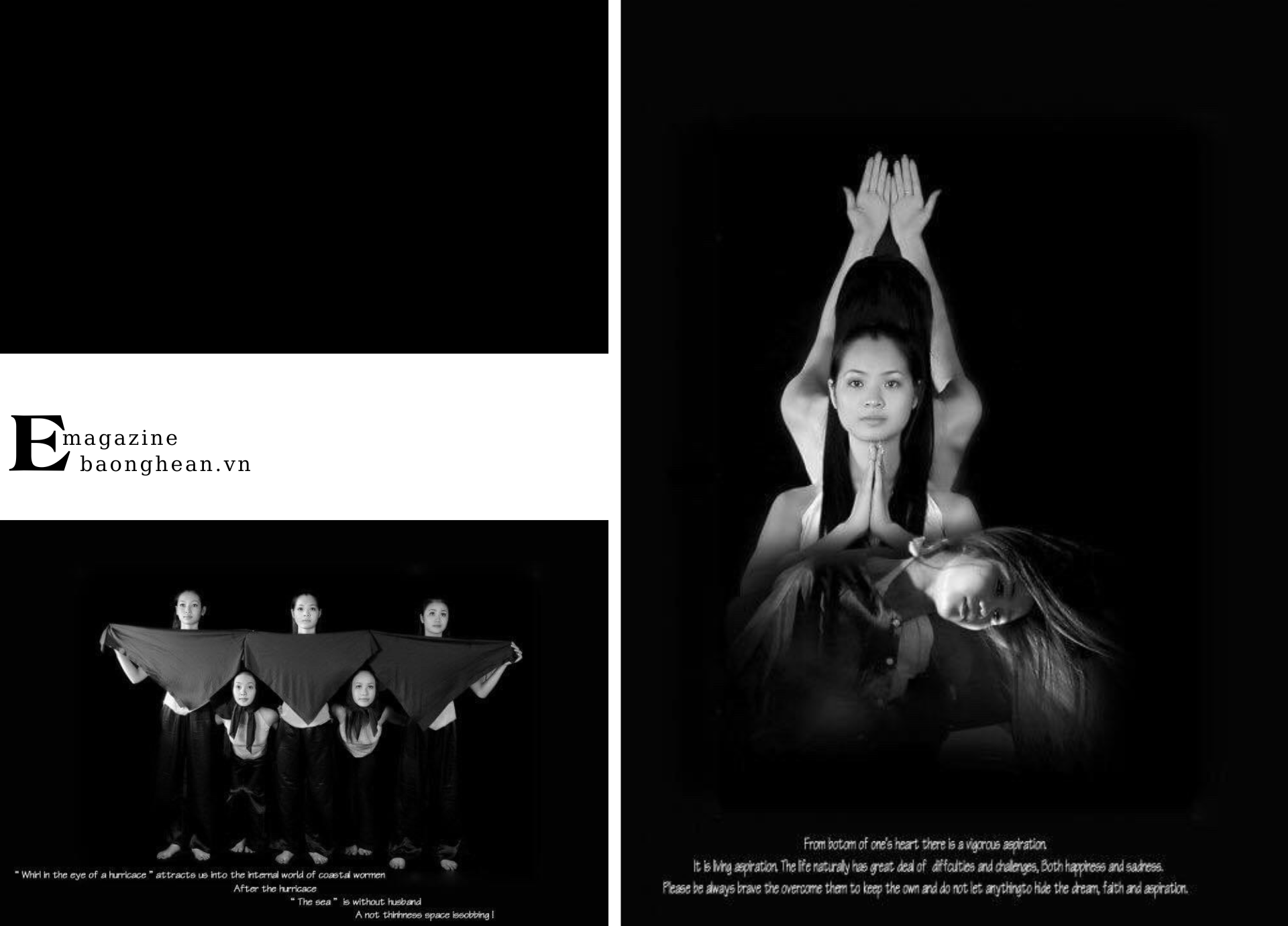
PV: In addition to her roles as choreographer, director, and lecturer of Traditional Folk Dance Choreography at the Vietnam Dance Academy, she is also active in scientific research. She is the head of the project “Cultural identity in modern festival performing arts”; “The beauty of cultural identity and festivals in Vietnam today”, “The issue of preserving and promoting cultural identity”, or traditional culture in the coming of age ceremony of the Dao Thanh Y, Hoanh Bo, Quang Ninh”… What is the motivation for her to be able to complete so much work?
People's Artist Thu Ha:Many times I wish there were more than 24 hours in a day, and I had a lot of health to work. It is true to say that I am a workaholic, but work, especially artistic work and research on ethnic folk culture, always gives me great excitement and energy. I don't know why, but the more I work, the more I feel that I need to improve more, be more creative, and I always feel that I lack time. However, when I start a new project, I never let myself "burn out of lesson plan" because I always follow the work plan and complete it to the best of my ability with self-discipline. Then the work just keeps on going and the busier I am, the more joy I feel, life has more meaning and new values.
PV: Thank you for this conversation!
